中考英语语法专题讲解——宾语从句(共21张PPT)
文档属性
| 名称 | 中考英语语法专题讲解——宾语从句(共21张PPT) |  | |
| 格式 | ppt | ||
| 文件大小 | 2.0MB | ||
| 资源类型 | 试卷 | ||
| 版本资源 | 通用版 | ||
| 科目 | 英语 | ||
| 更新时间 | 2022-04-10 18:58:30 | ||
图片预览

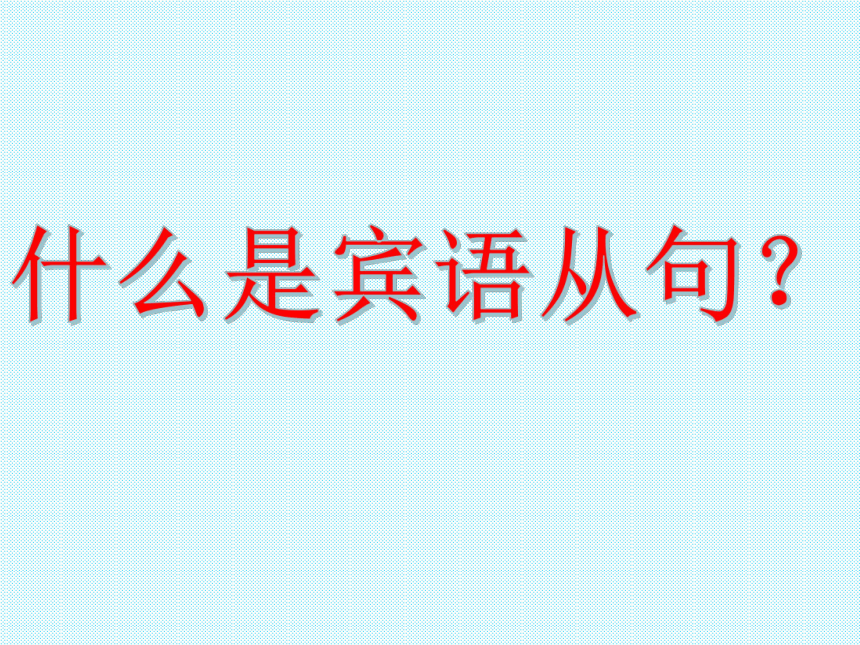

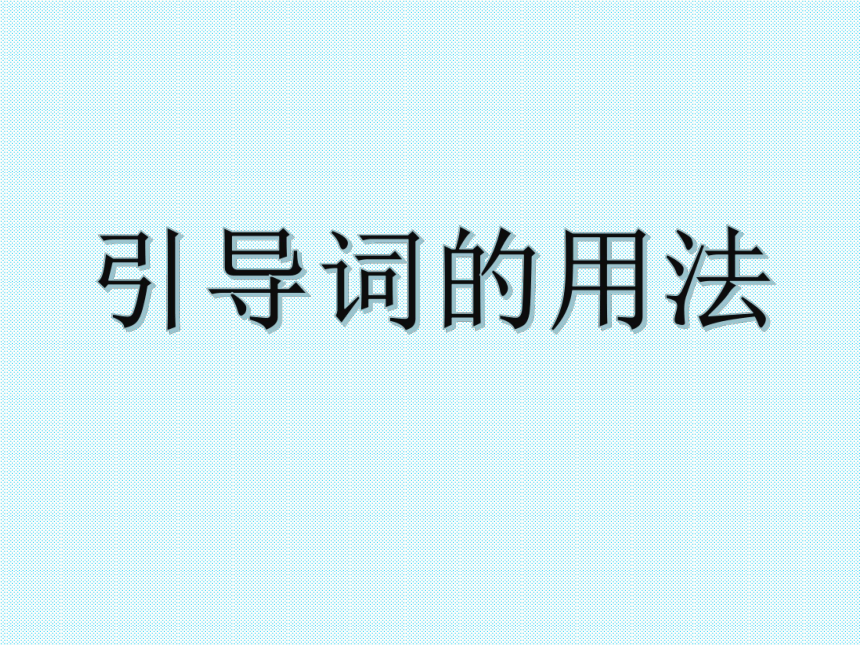
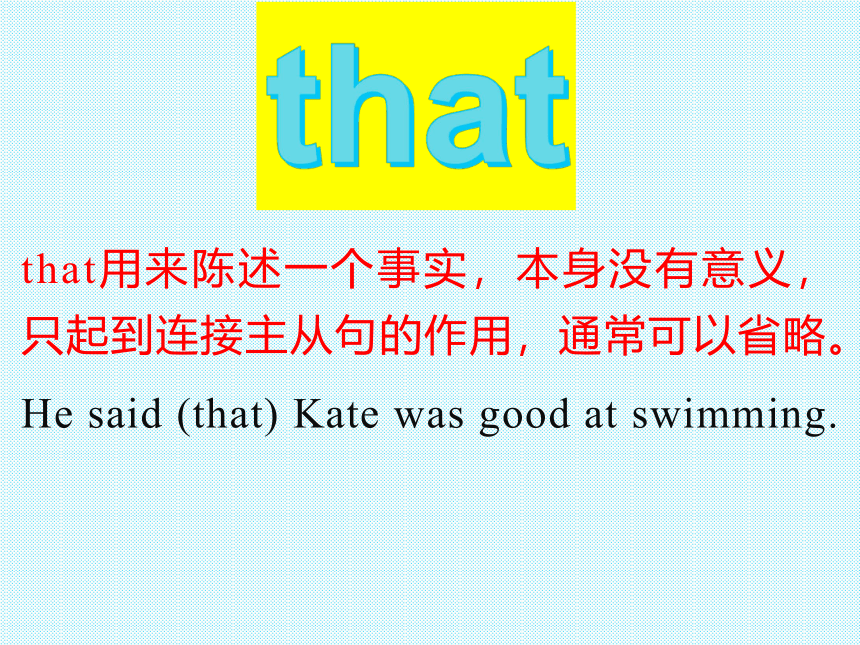

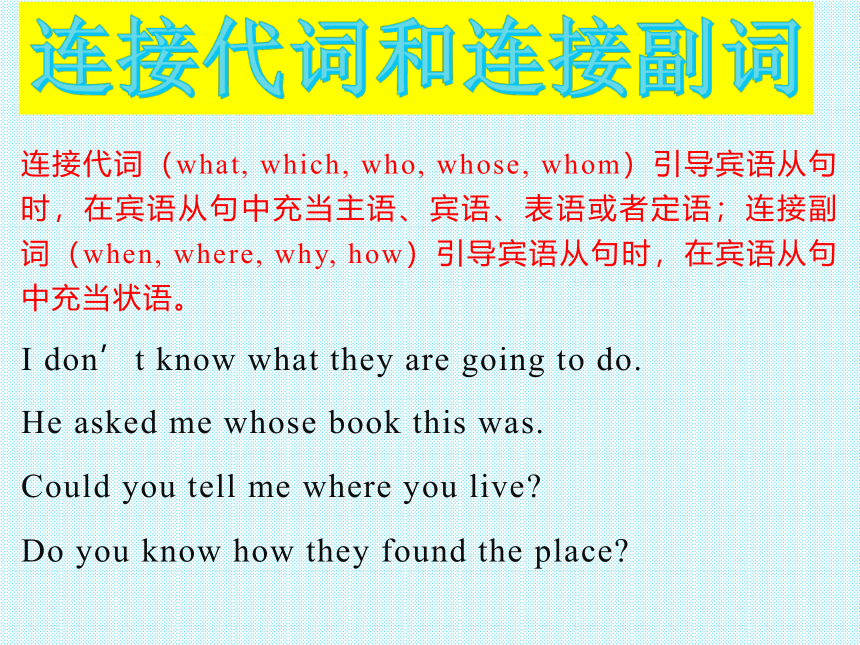
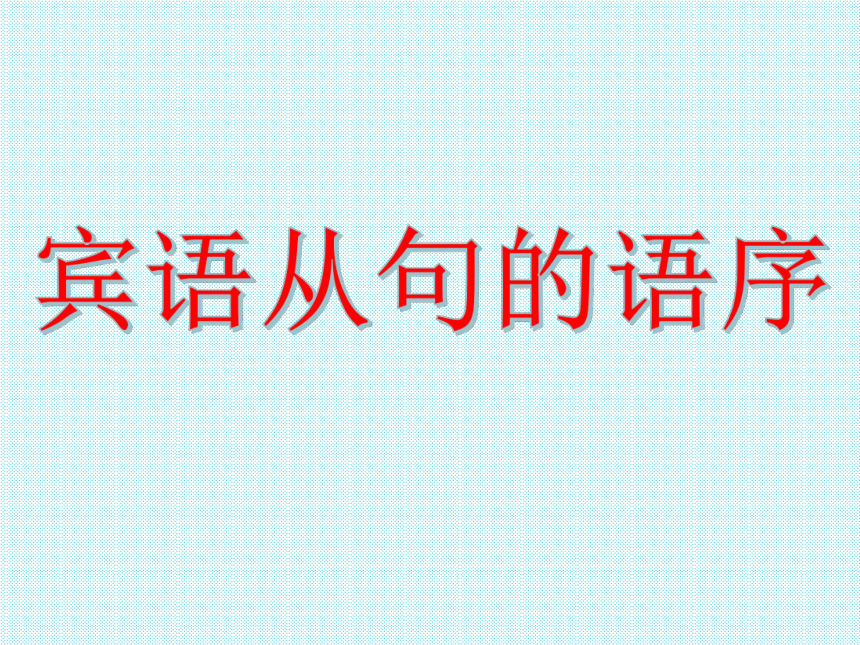
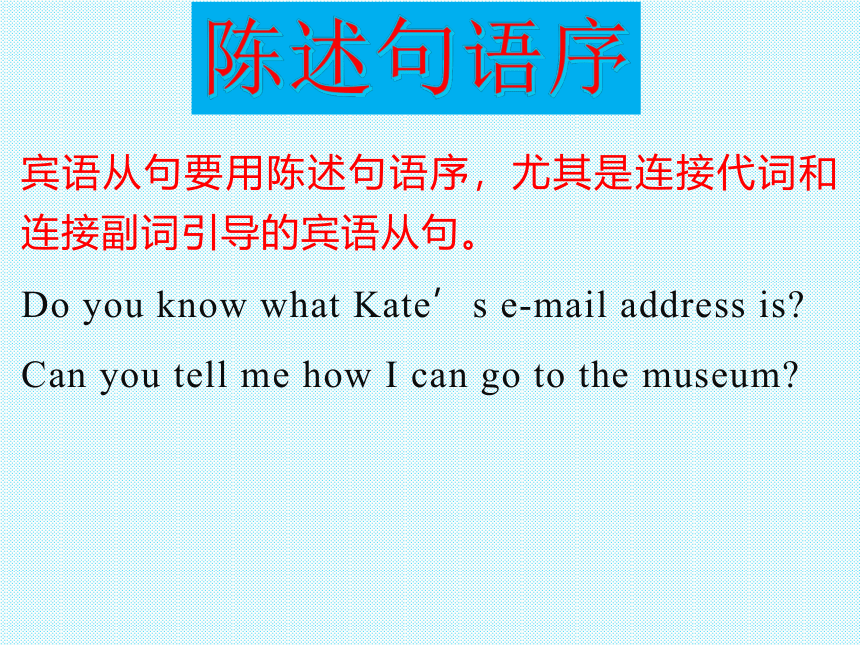
文档简介
(共21张PPT)
中考英语语法专题讲解
宾语从句
在句中起宾语作用的从句叫作宾语从句,宾语从句常放在及物动词或者介词后面作宾语。
that用来陈述一个事实,本身没有意义,只起到连接主从句的作用,通常可以省略。
He said (that) Kate was good at swimming.
whether/if表示“是否”,讲述一个悬而未决的事情,不充当句子成分,而且不能省略,两者通常可以互换。
He asked me whether/if Miss Gao was a teacher.
连接代词(what, which, who, whose, whom)引导宾语从句时,在宾语从句中充当主语、宾语、表语或者定语;连接副词(when, where, why, how)引导宾语从句时,在宾语从句中充当状语。
I don’t know what they are going to do.
He asked me whose book this was.
Could you tell me where you live
Do you know how they found the place
宾语从句要用陈述句语序,尤其是连接代词和连接副词引导的宾语从句。
Do you know what Kate’s e-mail address is
Can you tell me how I can go to the museum
1、如果主句是现在的某种时态(包括一般现在时、现在进行时、现在完成时),那么宾语从句的时态根据实际情况而定。
I remember he gave me a book yesterday.
He has told me that he’ll leave for New York tomorrow.
2、如果主句是过去的某种时态(包括一般过去时、过去进行时),那么宾语从句一般要用过去的某种时态(包括一般过去时、过去进行时、过去将来时、过去完成时)。
He told me that he would take part in the high jump.
He asked me if I had taken his soap.
3、如果宾语从句表示的是客观事实或者真理,即使主句是过去时,从句也要用一般现在时。
He told me that the earth goes round the sun.
He said that Yao Ming is much taller than him.
1、当宾语从句的主语和主句的主语相同,且主句的谓语动词是hope, wish, decide, agree, choose等时,宾语从句可以简化为不定式结构。
I hope that I can receive your e-mail.
=I hope to receive your e-mail.
2、当宾语从句的主语和主句的主语相同,且主句的谓语动词是know, remember, forget, learn等时,宾语从句可简化为“疑问词+不定式”结构。
She doesn’t know what she should do next.
=She doesn’t know what to do next.
在含有宾语从句的复合句中,当主句的主语为第一人称,谓语动词是think, believe, suppose等时,要将宾语从句的否定词转移到主句中,即主句的谓语动词用否定式,而宾语从句的谓语动词用肯定式。
I don't think he will come with you.
难点突破
一、引导宾语从句时whether和if的区别
whether和if引导宾语从句时,一般两者可以互换,但是在下列几种情况下通常使用whether:
(1)在具有选择意义又有or或or not时,尤其是直接与or not连用时,往往用whether。
(2)在介词之后用whether。
(3)在不定式前用whether。
Can you tell me whether the train has left or not
I don't know whether to accept or refuse.
I am not interested in whether you like the plan or not.
二、if和when引导的宾语从句和状语从句的区别
1、if有两个意思,作“是否”讲时,引导宾语从句,从句的时态根据实际情况而定;作“假如、如果”讲时,引导条件状语从句,此时从句通常用一般现在时表示将来。
We don’t know if it will rain tomorrow. If it rains, we don’t have a sports meeting.
2、when引导的时间状语从句,若主句是一般将来时,从句用一般现在时;when引导其它时态的时间状语从句时,从句时态应与主句时态保持一致;when引导的宾语从句,首先要保证从句的陈述句语序,然后再根据主句的时态确定从句的时态。
I don't know when my father will come back, but I’ll tell you when he comes back.
中考英语语法专题讲解
宾语从句
在句中起宾语作用的从句叫作宾语从句,宾语从句常放在及物动词或者介词后面作宾语。
that用来陈述一个事实,本身没有意义,只起到连接主从句的作用,通常可以省略。
He said (that) Kate was good at swimming.
whether/if表示“是否”,讲述一个悬而未决的事情,不充当句子成分,而且不能省略,两者通常可以互换。
He asked me whether/if Miss Gao was a teacher.
连接代词(what, which, who, whose, whom)引导宾语从句时,在宾语从句中充当主语、宾语、表语或者定语;连接副词(when, where, why, how)引导宾语从句时,在宾语从句中充当状语。
I don’t know what they are going to do.
He asked me whose book this was.
Could you tell me where you live
Do you know how they found the place
宾语从句要用陈述句语序,尤其是连接代词和连接副词引导的宾语从句。
Do you know what Kate’s e-mail address is
Can you tell me how I can go to the museum
1、如果主句是现在的某种时态(包括一般现在时、现在进行时、现在完成时),那么宾语从句的时态根据实际情况而定。
I remember he gave me a book yesterday.
He has told me that he’ll leave for New York tomorrow.
2、如果主句是过去的某种时态(包括一般过去时、过去进行时),那么宾语从句一般要用过去的某种时态(包括一般过去时、过去进行时、过去将来时、过去完成时)。
He told me that he would take part in the high jump.
He asked me if I had taken his soap.
3、如果宾语从句表示的是客观事实或者真理,即使主句是过去时,从句也要用一般现在时。
He told me that the earth goes round the sun.
He said that Yao Ming is much taller than him.
1、当宾语从句的主语和主句的主语相同,且主句的谓语动词是hope, wish, decide, agree, choose等时,宾语从句可以简化为不定式结构。
I hope that I can receive your e-mail.
=I hope to receive your e-mail.
2、当宾语从句的主语和主句的主语相同,且主句的谓语动词是know, remember, forget, learn等时,宾语从句可简化为“疑问词+不定式”结构。
She doesn’t know what she should do next.
=She doesn’t know what to do next.
在含有宾语从句的复合句中,当主句的主语为第一人称,谓语动词是think, believe, suppose等时,要将宾语从句的否定词转移到主句中,即主句的谓语动词用否定式,而宾语从句的谓语动词用肯定式。
I don't think he will come with you.
难点突破
一、引导宾语从句时whether和if的区别
whether和if引导宾语从句时,一般两者可以互换,但是在下列几种情况下通常使用whether:
(1)在具有选择意义又有or或or not时,尤其是直接与or not连用时,往往用whether。
(2)在介词之后用whether。
(3)在不定式前用whether。
Can you tell me whether the train has left or not
I don't know whether to accept or refuse.
I am not interested in whether you like the plan or not.
二、if和when引导的宾语从句和状语从句的区别
1、if有两个意思,作“是否”讲时,引导宾语从句,从句的时态根据实际情况而定;作“假如、如果”讲时,引导条件状语从句,此时从句通常用一般现在时表示将来。
We don’t know if it will rain tomorrow. If it rains, we don’t have a sports meeting.
2、when引导的时间状语从句,若主句是一般将来时,从句用一般现在时;when引导其它时态的时间状语从句时,从句时态应与主句时态保持一致;when引导的宾语从句,首先要保证从句的陈述句语序,然后再根据主句的时态确定从句的时态。
I don't know when my father will come back, but I’ll tell you when he comes back.
同课章节目录
- 词法
- 名词
- 动词和动词短语
- 动词语态
- 动词时态
- 助动词和情态动词
- 非谓语动词
- 冠词
- 代词
- 数词和量词
- 形容词副词及其比较等级
- 介词和介词短语
- 连词和感叹词
- 构词法
- 相似、相近词比较
- 句法
- 陈述句
- 一般疑问句和否定疑问句
- 特殊疑问句及选择疑问句
- 反意疑问句
- 存在句(There be句型)
- 宾语从句
- 定语从句
- 状语从句
- 主谓一致问题
- 简单句
- 并列句
- 复合句
- 主谓一致
- 主、表语从句
- 名词性从句
- 直接引语和间接引语
- 虚拟语气
- 感叹句
- 强调句
- 倒装句
- 祈使句
- 句子的成分
- 句子的分类
- 题型专区
- 单项选择部分
- 易错题
- 完形填空
- 阅读理解
- 词汇练习
- 听说训练
- 句型转换
- 补全对话
- 短文改错
- 翻译
- 书面表达
- 任务型阅读
- 语法填空
- 其他资料
